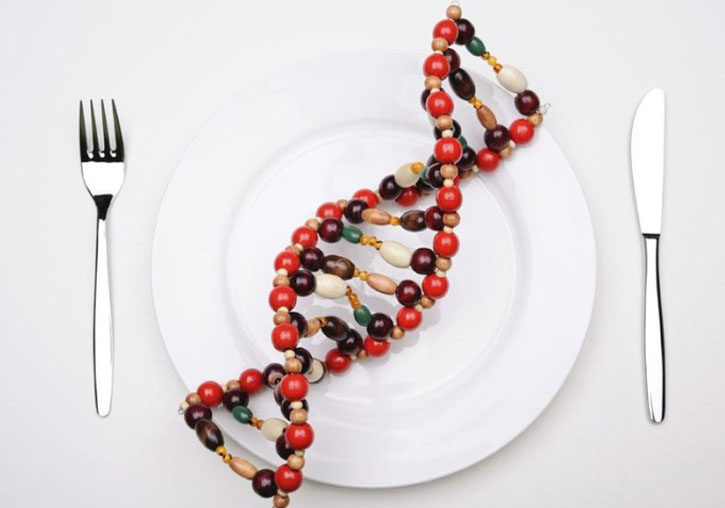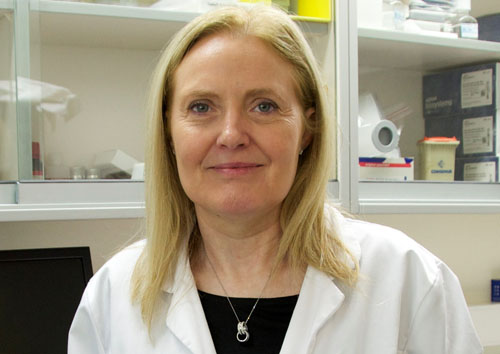
Nutritional genomics studies the role of genes in nutrition, a key factor in human health and personalised preventive medicine. Dolors Corella, an expert in Mediterranean diet, explains the relationship between genes and diet in quality of life. It is an area of study that earned her the 2018 Medical Research Prize awarded by the Rey Jaime I Awards Foundation.
More and more studies show the importance of behaviour or environment on human genes, that is, on the basic, physical and functional unit of inheritance, each segment of DNA. As environment or behaviour, lifestyle, diet, physical activity or microorganisms can be defined. In this way, it has been shown that the food factor has a great role in lives, beyond what is generally known by society.
The work of scientist Omar Ramos-López Guide for Current Nutrigenetic, Nutrigenomic, and Nutriepigenetic Approaches for Precision Nutrition Involving the Prevention and Management of Chronic Diseases Associated with Obesity explains that nutrigenomics is the science in charge of studying the effect of food and its constituents of food on the expression of genes, proteins and metabolites, and, thus, the possible effect of specific nutrients or type of diet on health.
Thus, nutrition and nutrigenomics are two different concepts. As Dolors Corella, professor of Preventive Medicine at the University of Valencia and researcher at the CIBER Physiopathology of Obesity and Nutrition explains, “nutrition is the classic concept to refer to the way to provide energy and nutrients to the body through food. While nutrigenomics is a new discipline within nutrition that takes into account the different response to diet according to people, mainly based on their genetic characteristics”.

and researcher at the CIBER Physiopathology of Obesity and Nutrition.
Identical twins are the best study model, since they are two people with 100% the same genes, but who may have differences caused by the environment. A representative example of the effect of nutrition on genes is the case of bees, as seen in Hofman’s The Power of Nutrition (Part 4). In this case, the worker bees and the queen bee are genetically identical, like twins, but they have physical differences such that the queen is larger and has functional ovaries while the workers are smaller and sterile. This is caused by their different feeding in the larval stage, where the larvae destined to become queens feed on large amounts of royal jelly unlike the others. This food causes the genes involved in development as queens to be activated.
On the other hand, it should be noted that this effect of nutrition on genes is also heritable, so pathologies such as celiac disease or obesity can result from the effect at the molecular level from the previous generation.
Regarding the most advisable diet style, Dolors Corella explains: “a healthy diet is balanced in macronutrients and provides the micronutrients and other non-nutritive elements necessary for good health. They tend to be very rich in vegetables and fruits, with whole grains, fish consumption and low consumption of meats, mainly white meats, they use extra virgin olive oil and include nuts”. She adds the expert that “these diets are also more sustainable. The Mediterranean diet is the best example of a healthy and sustainable diet”. In addition, a healthy lifestyle based on a balanced diet low in saturated and trans fats and rich in fibre can be important in preventing intestinal dysbiosis or loss of beneficial microorganisms and preserving the immune system.
Therefore, the great relevance that nutrigenomics can have in personalised preventive medicine together with other omic sciences (proteomics, metabolomics, etc.) is raised. In addition, it can also help in improving the treatment of diseases where diet can be a key control factor. Corella synthesises: “the role will be important because prevention and treatment will be optimised according to the characteristics of each person”.
In this way, it is concluded that the environment or human behaviour have a key role on health and that of the offspring, where nutrigenomics is a science that goes beyond conventional nutrition and that can be key in personalised preventive medicine and in the treatment of certain diseases.

.jpg)








